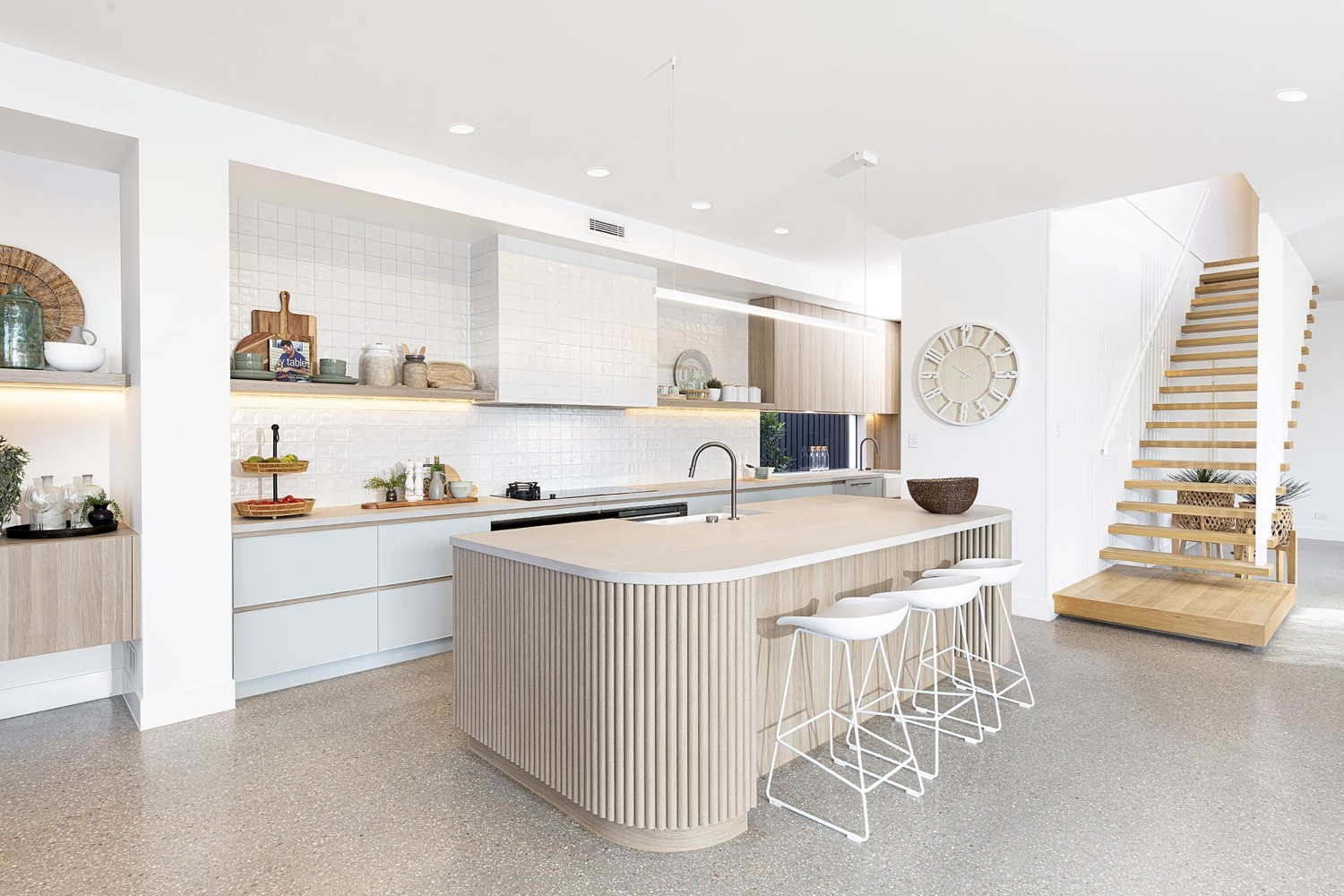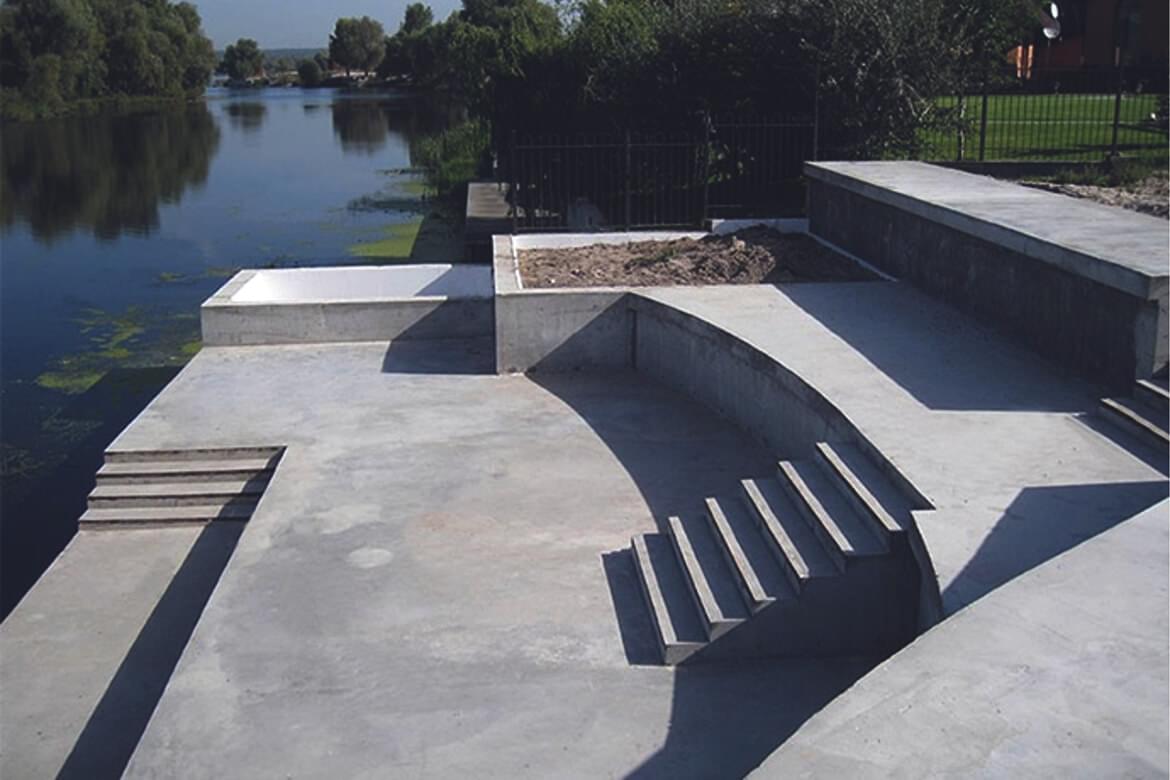Bulkhead on Lake Livingston: Key Resources Used in Modern Architecture
Checking Out the Various Uses of Bulkhead Structures in Modern Style
Bulkhead frameworks play a considerable duty in modern-day design, offering both useful and aesthetic purposes. They can specify spaces, boost storage space options, and boost lights. In industrial settings, they serve as centerpieces that show brand identity - Bulkhead on Lake Livingston. Additionally, their integration commonly sustains audio monitoring and lasting methods. Recognizing the complete extent of their applications discloses much concerning modern layout fads and customer experience. What ingenious usages of bulkheads might emerge in the future?
Defining Bulkhead Structures
Bulkhead structures play an essential duty in contemporary style, working as essential parts in numerous building layouts. These frameworks are typically specified as raised ceilings or systems, typically used to hide mechanical systems, electrical wiring, or plumbing. Bulkheads can be discovered in both commercial and household settings, where they give a seamless mix of performance and aesthetics. Their design can integrate lights fixtures and other attractive aspects, enhancing the total visual appeal of a space.
Generally built from products such as timber, steel, or drywall, bulkheads can be personalized to fit the building style and needs of the building (Bulkhead on Lake Livingston). They offer not only to conceal undesirable infrastructure but likewise to produce specified zones within open rooms. By managing the circulation of a space, bulkheads add to the spatial organization, making them a substantial aspect of modern building method. Subsequently, their definition encapsulates both functional and visual measurements
Useful Applications in Residential Layout
Bulkhead structures play an important function in domestic style by facilitating space optimization approaches that take full advantage of functional locations. Furthermore, they contribute aesthetic style elements that improve the visual allure of living rooms. On top of that, these structures supply essential architectural assistance remedies, ensuring the honesty and safety of the home.
Area Optimization Strategies
As modern-day property styles progressively focus on reliable use of area, innovative techniques arise to make the most of capability without compromising visual appeals. One famous technique entails the assimilation of bulkhead structures, which can mark locations while offering vital storage remedies. These structures can be utilized to create upright storage space units that enhance both company and ease of access. Furthermore, multi-functional furniture, such as foldable tables and exchangeable sofas, matches bulkhead layouts, enabling areas to adjust to differing requirements. Open layout even more optimize spatial flow, encouraging versatility in use. Incorporating integrated shelving and recessed lighting within bulkheads likewise adds to a streamlined environment, making sure that every square inch of space is used efficiently and harmoniously within the general design.
Visual Style Components

Architectural Assistance Solutions
In modern residential design, a reliable structural assistance solution is necessary for keeping the stability of areas while maximizing format and functionality. Bulkhead structures play a substantial role in this situation, serving as both assistance and partitioning components. They can hide mechanical systems, such as pipes and electrical circuitry, while offering support to the ceiling and flooring systems. By purposefully placing bulkheads, engineers can produce defined areas within open flooring strategies, boosting functionality without jeopardizing structural stability. Furthermore, these frameworks can fit lighting fixtures, adding to both aesthetic appeals and usefulness. To sum up, bulkhead frameworks are important in property design, providing functional support remedies that improve both the capability and aesthetic allure of living spaces.
Enhancing Looks in Business Areas
When business rooms embrace cutting-edge bulkhead structures, they not only define physical limits yet additionally substantially enhance the overall aesthetics of the environment. These building components function as aesthetic centerpieces, drawing interest and producing a feeling of intrigue. By integrating diverse products such as wood, glass, or steel, bulkheads can mirror a brand name's identification and mission, adding to a natural layout.
Moreover, the strategic placement of bulkheads can adjust light and darkness, adding deepness and dimension to otherwise flat rooms. This interplay can transform a business area right into a welcoming atmosphere, urging customer engagement. Furthermore, using color and texture in bulkhead layout can evoke details emotions, enhancing the total customer experience. Inevitably, the thoughtful integration of bulkhead frameworks elevates the aesthetic appeal of business areas, making them not only useful however also visually charming, thus cultivating a lasting perception on visitors.
Acoustic Performance and Noise Monitoring
Efficient acoustic efficiency plays a crucial duty in modern design, specifically within commercial spaces where sound monitoring is essential. Bulkhead structures can significantly improve acoustic top qualities by taking in noise, decreasing echo, and mitigating sound transfer in between locations. These functions are especially beneficial in settings such as cinemas, workplaces, and dining establishments, where clear communication and a pleasurable acoustic experience are paramount.
The strategic placement and design of bulkheads can assist create sound-buffer zones, properly separating loud areas from quieter ones. Products utilized in bulkhead building and construction, such as soft surfaces and acoustic panels, add to their sound-dampening capabilities. In addition, the incorporation of bulkheads enables the combination of sound-absorbing components without jeopardizing visual charm. By dealing this content with acoustic efficiency, designers can produce harmonious settings that enhance convenience, improve customer experience, and advertise performance, making bulkheads an essential element in the layout of modern business areas.
Integrating Bulkheads for Reliable Area Use
Typically ignored, the assimilation of bulkheads in architectural layout can greatly improve space usage in modern structures. These architectural aspects serve multiple useful functions, offering a means to conceal mechanical systems, electric wiring, and plumbing without jeopardizing aesthetic appeals. By tactically placing bulkheads, architects can produce specified locations within open layout, thus facilitating better organization and circulation.
Bulkheads can integrate storage solutions and illumination functions, optimizing the capability of otherwise squandered vertical room. In property settings, they might mark areas such as kitchens or living locations, while in commercial spaces, they can improve the performance of designs by clearly marking pathways and workplace.
Ultimately, the thoughtful assimilation of bulkheads adds to a much more well organized and visually enticing environment, enabling for versatile areas that can develop with the requirements of their residents. This technique not just enhances room yet likewise fosters a much more unified communication between form and feature.
Bulkheads in Public Design

Building Visual Enhancements
While many architectural aspects purpose for performance, bulkheads in public architecture offer a dual purpose by boosting aesthetic allure. These frameworks often produce aesthetic rate of interest via their style, incorporating perfectly with bordering aspects. By using various materials, textures, and colors, bulkheads can add to a distinct identity for public areas, such as airports, galleries, and article collections. Their strategic positioning helps to delineate areas, guiding visitors while adding depth to the overall design. Additionally, bulkheads can highlight lights, creating vibrant atmospheres that change throughout the day. This visual improvement not just elevates the site visitor experience yet also cultivates a local color, making bulkheads an important consideration in contemporary public design. Generally, bulkheads symbolize the combination of kind and function.

Architectural Assistance Solutions
As designers seek innovative means to boost the architectural integrity of public spaces, bulkheads emerge as essential components in the design and building and construction procedure. These frameworks give important support, specifically in locations based on hefty foot traffic or dynamic tons. By dispersing weight equally, bulkheads aid avoid architectural failing while permitting flexible layout options. In big places, such as stadiums and convention centers, bulkheads are usually incorporated into the general building structure, making sure security and safety. Furthermore, they can promote the incorporation of utilities and mechanical systems, contributing to the efficiency of room use. Ultimately, bulkheads represent an essential solution in modern-day public style, strengthening both capability and safety and security in community-focused atmospheres.
Environmental Management Steps
Integrating environmental management procedures into public architecture has actually come to be increasingly crucial as urban designers prioritize sustainability together with architectural assistance. Bulkhead structures offer a double function in this regard, functioning as obstacles against erosion and flooding while all at once boosting the aesthetic allure of metropolitan landscapes. Their style usually includes natural elements such as plants, which can enhance air quality and supply habitats for wild animals. Furthermore, bulkheads can be crafted with permeable products that permit water absorption, lowering drainage and promoting groundwater recharge. This combination of environmental factors to consider not just preserves the atmosphere however additionally fosters community durability versus environment modification. By making use of bulkheads properly, designers contribute to sustainable metropolitan advancement that lines up with contemporary environmental goals.
Future Patterns in Bulkhead Style
Arising fads in bulkhead style mirror an expanding emphasis on sustainability, advancement, and capability in contemporary design. Developers are increasingly incorporating environmentally friendly products, such as recycled compounds and bioplastics, to minimize environmental effect. Additionally, the combination of clever modern technology is coming to be widespread, allowing bulkheads to serve multi-functional objectives, consisting of power storage and environment control.
In city setups, modular bulkhead systems are acquiring traction, providing flexibility in layout and ease of installment. These systems can be adapted to different landscapes, enabling for effective area utilization. Additionally, visual considerations are advancing; bulkheads are currently being designed to improve aesthetic allure, commonly integrating imaginative elements that resonate with local culture.
As climate resilience comes to be a priority, future bulkhead layouts will likely prioritize flooding protection and stormwater management, making sure architectural honesty while resolving environmental obstacles. This shift signifies a holistic technique to style that satisfies both human demands and ecological special info duties.
Often Asked Concerns
What Materials Are Generally Made Use Of for Bulkhead Construction?
Usual materials for bulkhead construction consist of concrete, steel, timber, and composite products. These alternatives offer toughness, structural integrity, and resistance to environmental aspects, making them ideal for numerous applications in construction and design jobs.
Exactly How Do Bulkheads Influence Building Energy Performance?
Bulkheads enhance developing energy performance by giving thermal insulation and decreasing air leak (Bulkhead on Lake Livingston). They assist maintain interior temperatures, thus lowering home heating and cooling demands, eventually leading to reduced power prices and improved environmental sustainability
Exist Any Building Ordinance Specific to Bulkhead Frameworks?
Yes, constructing codes particular to bulkhead structures exist, differing by area. These policies usually resolve safety, structural honesty, and availability, guaranteeing that bulkheads fulfill required requirements for building and construction and layout within a provided jurisdiction.
Can Bulkheads Be Easily Modified or Eliminated Later On?
Bulkheads can usually be customized or removed, relying on their design and construction. Such changes might need careful preparation and adherence to building codes to guarantee architectural honesty and security are maintained throughout the procedure.
What Are the Expenses Related To Installing Bulkhead Structures?
The costs related to mounting bulkhead frameworks can differ substantially, generally affected by materials, style intricacy, and labor. Usually, expenses range from moderate to high, relying on the task's specific needs and place.
Bulkhead structures play a crucial role in modern design, offering as vital components in various building styles. Bulkhead structures play an important role in domestic design by assisting in area optimization methods that optimize functional locations. Commonly neglected, the assimilation of bulkheads in architectural design can significantly boost area usage in contemporary buildings. As engineers look for ingenious means to improve the architectural integrity of public spaces, bulkheads arise as crucial elements in the layout and building procedure. The prices connected with mounting bulkhead frameworks can vary significantly, typically influenced by products, layout intricacy, and labor.